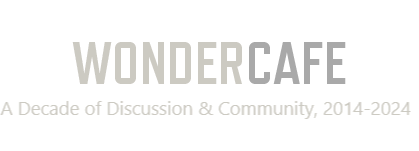Mendalla
Happy headbanging ape!!
- Pronouns
- He/Him/His
Is it what is believed or how it is believed/lived?
Is it about what is accepted or what is rejected?
Is it about a set of beliefs/ideas or about embracing diversity with many possible beliefs/ideas?
Is it about theology, practice, or a bit of both?
Is it inclusive or exclusive?
I am not really expecting people to answer these questions one by one so much as using them as a guide to trying to tell us what is "progressive Christianity". Because I'm not sure it is all that clear at times. Different people seem to mean different things by it.
Is it about what is accepted or what is rejected?
Is it about a set of beliefs/ideas or about embracing diversity with many possible beliefs/ideas?
Is it about theology, practice, or a bit of both?
Is it inclusive or exclusive?
I am not really expecting people to answer these questions one by one so much as using them as a guide to trying to tell us what is "progressive Christianity". Because I'm not sure it is all that clear at times. Different people seem to mean different things by it.
